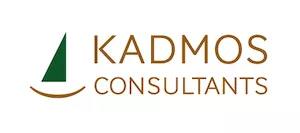- in United States
- with readers working within the Insurance industries
Can sponsorship costs be passed to the employee?
Immigration rules expressly prohibit passing the cost of sponsorship to the employee. The employer risks losing the licence if caught.
What are sponsorship costs
Sponsorship costs are the cost of applying for the sponsor licence, including any legal fees, the cost of assigning the certificate of sponsorship and the immigration skills charge.
From 9 April 2025, the Home Office fee for the sponsor licence is £574 for a small business or £1579 for a medium or large business. The cost of assigning a certificate of sponsorship is £525, and the immigration skills charge, payable at the time of assigning the certificate of sponsorship, is £1000 for the first 12 months of sponsorship and £500 per any subsequent 6 months – for medium and large sponsors or £364 for the first 12 months and then £182 for each subsequent 6 months for small companies.
Visa fees and the Immigration Health Surcharge
Visa fees and the Immigration Health Surcharge do not count as the cost of sponsorship and may be covered by the employee or the sponsor, depending on the agreement between the sponsor and the employee.
However, if the sponsor provides a loan to cover the visa and/or relocation costs, they cannot deduct repayment from the employee's salary if that would bring the salary below the applicable salary threshold. The changes to the Appendix Skilled Worker introduced from 9 April 2025 arguable clarify the existing position in that the minimum salary cannot be reduced by way of loan repayment. However, the new rules offer a clear guidance on how loans can be repaid.
The salary threshold is determined by the general threshold for skilled workers (currently £38,700) and occupation specific minimum threshold.
For example, a web designer falling under 2020 SOC code 2141 has to be paid at least £41,300 per year based on a 37.5-hour week, or not less than £21.18 per hour. If the web designer is to be employed for less than 37.5 hours, the applicable hourly rate will apply, but the annual pay cannot fall below the general threshold of £38,700 per year, even if the sponsored worker will only work a 12-hour week.
If the sponsored worker is paid at the minimum salary level, the loan cannot be deducted from the salary. If the worker is paid above the minimum salary level, the loan can be deducted provided the deductions are spread out in such a way as not to bring the salary below the applicable threshold.
For example, if the employer grants the sponsored web designer a loan of £10,000, this loan has to be added to the total salary over the period of sponsorship and then divided by the number of years. If sponsored for a 5-year period, the loan of £10,000 spread over the 5-year period requires additional £2000 per year. This will bring the minimum salary up to £43,300 (£41,300 + £2000).
There are no provisions for recovery of any outstanding amount of a loan where employment terminated early. Employment contract may contain provisions to this effect, but the immigration rules will not allow deductions which bring the monthly payout below the threshold, even if it applies only to the final payment of salary.
It makes no commercial sense for the employer to raise the worker's salary in order to deduct the same amount as a loan as this will increase the tax liability for both the employer and the employee, and the employer will ultimately bear the cost anyway.
But interestingly, whether such loans make commercial sense or not, they are more accessible for high earners whose remuneration is sufficiently above the prescribed threshold.
Where the employer pays the visa application fee, the Immigration Health Surcharge and any relocation costs for the sponsored employee, it makes sense to negotiate these bonuses outside the agreed salary, or agree on an incremental salary rise rather than deductions from salary.
The content of this article is intended to provide a general guide to the subject matter. Specialist advice should be sought about your specific circumstances.
[View Source]

